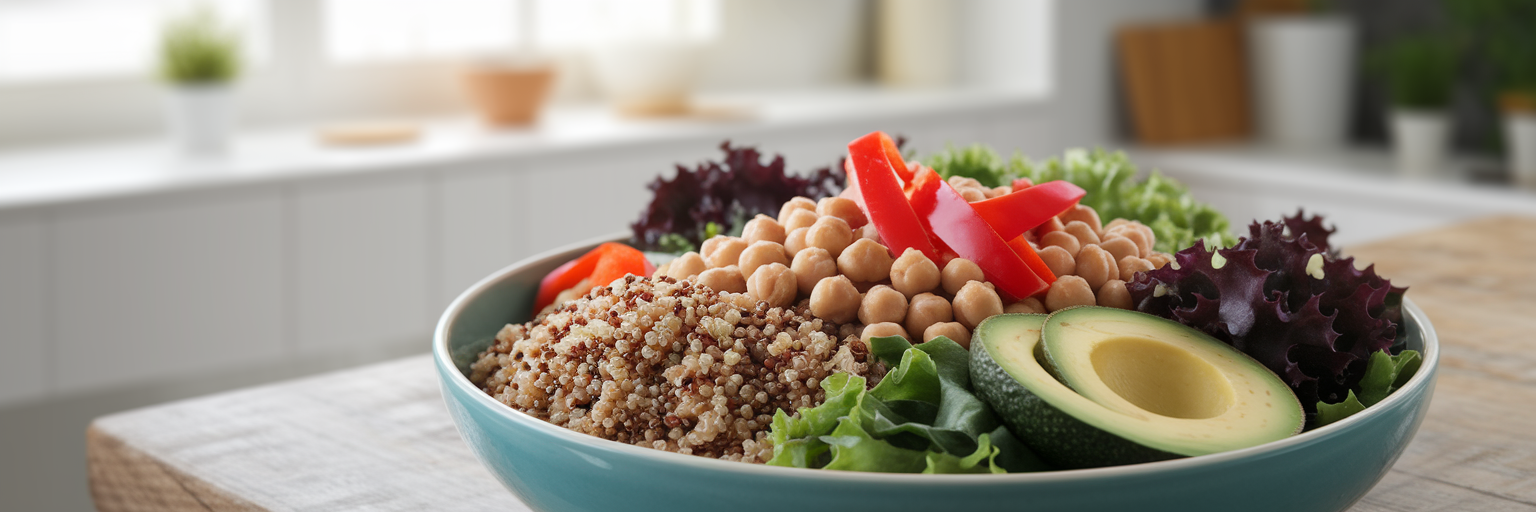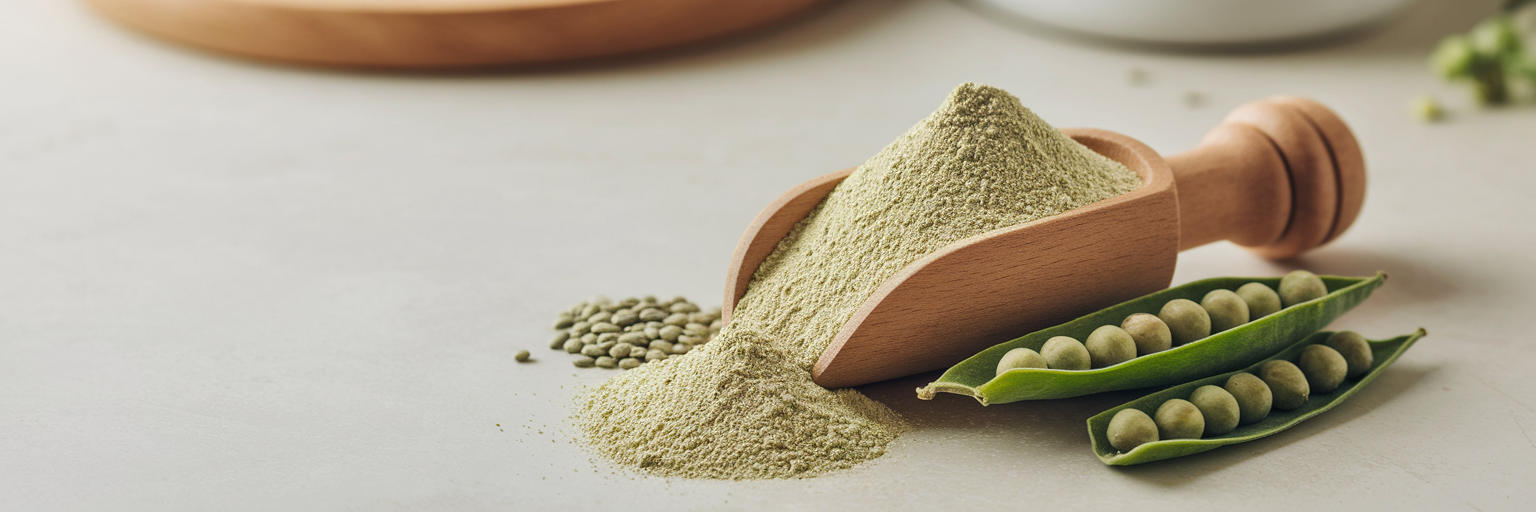If you lead an active life, you know the feeling well. It’s that satisfying ache in your muscles the day after a great workout. While it can be a badge of honor, it’s also a sign that your body is hard at work repairing itself. This process is driven by inflammation, and what you eat plays a huge role in how efficiently your body handles it.
Understanding Exercise, Inflammation, and Your Diet
That familiar post-workout soreness is a sign of acute inflammation. Think of it as your body’s dedicated construction crew arriving on-site to repair the microscopic tears in your muscle fibers. This process is not only normal but essential. It’s how your muscles rebuild themselves to become stronger and more resilient. This is the "good" kind of inflammation, a temporary and targeted response to a specific stressor like exercise.
However, there’s another type of inflammation that isn’t so helpful. Chronic, low-grade inflammation is a persistent, body-wide state that can contribute to long-term health issues. It’s a quiet, underlying stress that doesn’t go away. The good news is that your diet is one of the most powerful tools you have to manage it.
The foods you choose can either fuel this unhelpful inflammation or help keep it in check. While traditional animal proteins provide the necessary building blocks for muscle repair, they don't always come with extra benefits. Plant-based proteins, on the other hand, offer those same essential building blocks plus a unique toolkit of compounds that actively help your body manage its inflammatory response. This is where your recovery can get a serious upgrade.
The Anti-Inflammatory Power of Plant-Based Proteins

What makes plant-based proteins so effective at managing inflammation? It’s because they are a complete package deal. When you eat plant proteins, you’re not just getting amino acids. You’re also getting a rich supply of fiber, antioxidants, and phytochemicals, all of which work together to support your body’s recovery process.
This isn't just a hunch; it's backed by solid research. A consistent plant based anti inflammatory diet has been shown to significantly lower key inflammatory markers in the body. In fact, research summarized by Rupa Health indicates that plant-based diets are linked to lower levels of high-sensitivity C-reactive protein (hs-CRP), a primary indicator of inflammation in the body. This shows a direct connection between what’s on your plate and your internal wellness.
Here’s how these plant-powered components work to your advantage:
- Antioxidants: Intense exercise naturally generates free radicals, unstable molecules that can cause cellular damage. The antioxidants abundant in plants, like vitamins C and E, neutralize these free radicals. This helps reduce muscle damage and soreness, allowing you to bounce back faster.
- Fiber: Dietary fiber is crucial for nourishing a healthy gut microbiome. A balanced gut is essential for regulating your body's overall inflammatory response. When your gut is happy, your immune system is more balanced and less likely to overreact with excessive inflammation.
By choosing plant-based proteins, you’re giving your body a multi-pronged strategy to cool down after a workout. For more insights on how plant-based eating can support your overall wellness, you can discover more on our blog.
Top Vegan Proteins for Optimal Recovery
Knowing that plants can help is one thing, but knowing which ones to add to your grocery list is even better. Certain anti inflammatory vegan foods are particularly well-suited for post-workout recovery because of their unique nutritional profiles. Let's look at some of the top contenders.
Legumes: The Foundation of an Anti-Inflammatory Diet
Lentils, chickpeas, and black beans are true staples for a reason. They are packed with protein and are exceptionally high in fiber, which supports the healthy gut microbiome we just discussed. They also contain polyphenols, powerful plant compounds that have been shown to have strong anti-inflammatory effects. Adding a cup of lentils to your soup or chickpeas to your salad is an easy and effective way to support your body’s recovery systems.
Complete Proteins for Muscle Repair
For efficient muscle repair, you need all nine essential amino acids. Quinoa, often mistaken for a grain, is a seed that provides a complete protein profile. Tofu and tempeh, both derived from soybeans, are also complete proteins that are incredibly versatile in the kitchen. These foods provide the direct building blocks your body needs, making them some of the best vegan protein for muscle recovery.
Specialized Proteins for Targeted Benefits
Some plant proteins offer unique advantages. Hemp seeds and sacha inchi are fantastic sources of anti-inflammatory omega-3 fatty acids. Hemp seeds also provide a good dose of magnesium, which aids in muscle function, while sacha inchi is rich in vitamin E, a potent antioxidant. These specialized proteins give your body an extra edge in fighting inflammation and supporting tissue repair. To see how you can use these ingredients, check out these simple and delicious meal ideas.
| Protein Source | Key Anti-Inflammatory Compound | Best For... |
|---|---|---|
| Lentils | Fiber & Polyphenols | Reducing systemic inflammation and supporting gut health. |
| Quinoa | Complete Amino Acids & Flavonoids | Efficient post-workout muscle repair and synthesis. |
| Hemp Seeds | Omega-3 Fatty Acids (ALA) | Directly fighting inflammation and supporting joint health. |
| Sacha Inchi | Omega-3s & Vitamin E | Targeted tissue repair and immune system support. |
This table summarizes the unique benefits of different plant protein sources. The selection is based on a combination of protein completeness, fiber content, and the presence of specific anti-inflammatory compounds like omega-3s and antioxidants.
Choosing the Right Vegan Protein Powder

While whole foods are the foundation, sometimes you need a quick and convenient protein source, especially after a workout. This is where a high-quality vegan protein powder comes in. But not all powders are created equal. Here’s what to look for to ensure you’re getting the benefits without any unwanted extras.
Key Ingredients to Look For
Seek out powders made from easily digestible and effective sources. Pea, brown rice, hemp, and sacha inchi proteins are all excellent choices. These ingredients provide a potent dose of protein and are generally well-tolerated, avoiding the digestive issues some people experience with whey or casein.
The Advantage of Protein Blends
One of the smartest choices you can make is a protein blend. For example, combining pea protein (which is high in lysine) with brown rice protein (which is high in methionine) creates a complete amino acid profile. This makes a blended vegan protein for inflammation just as effective for muscle building as animal-based proteins, but with the added anti-inflammatory benefits of plants. A well-formulated blend like our chocolate vegan protein is designed for optimal absorption and effectiveness.
Reading the Label: What to Avoid
This might be the most important step. A great protein source can be undermined by unhealthy additives. Be sure to check the label and steer clear of:
- Excessive added sugars: Sugar is a known driver of inflammation, so adding it to your recovery shake is counterproductive.
- Artificial sweeteners: Ingredients like sucralose and aspartame can disrupt gut health, which works against your anti-inflammatory goals.
- Unnecessary fillers and gums: These are often added for texture but provide no nutritional value and can sometimes cause digestive upset.
Modern processing techniques have also made plant proteins highly bioavailable, meaning your body can absorb and utilize them very efficiently. For more tips, explore our guide to finding the best protein powders for your needs.
Simple Ways to Weave Vegan Protein into Your Day
Knowing what to eat is the first step; making it a consistent habit is what brings results. The key to learning how to reduce workout inflammation is to integrate these powerful foods into your daily routine. The great news is that it’s easier than you think.
Here are a few simple ideas to get you started:
- Start Your Day Strong: Your morning meal sets the tone for the rest of the day. Add a scoop of vegan protein powder to your smoothie for a quick and easy boost, or stir a tablespoon of hemp hearts into your oatmeal for added protein and healthy fats.
- Power Up Your Meals: Think about how you can add a plant-powered punch to your lunch and dinner. Make a big batch of lentil soup for the week, toss a can of chickpeas into your salad, or use marinated tofu in a quick stir-fry. These small additions make a big difference.
- Snack Smart: Instead of reaching for something processed, have a protein-rich snack ready to go. Roasted chickpeas are a crunchy and satisfying option, and of course, a quick post-workout shake is one of the most efficient ways to kickstart recovery.
Remember, consistency is more important than perfection. Spreading your protein intake throughout the day helps maintain a steady supply of amino acids for your muscles, which is more effective for recovery than consuming it all in one sitting. We encourage you to explore different options, find what you enjoy, and see how great your body can feel. Feel free to browse our full range of plant-based products to support your active lifestyle.



